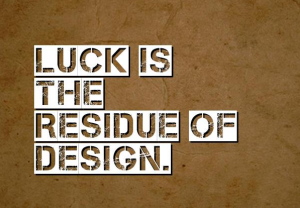 Spring is in the air…and that means baseball season is around the corner. Not a fan of baseball? That’s OK. We won’t focus on baseball for too long, but bear with us as we attempt to drive home a point (pun intended)!
Spring is in the air…and that means baseball season is around the corner. Not a fan of baseball? That’s OK. We won’t focus on baseball for too long, but bear with us as we attempt to drive home a point (pun intended)!
Picture, for a moment, that you’re a pitcher. Not just any pitcher — a highly-paid, highly-skilled pitcher. When you’re up at the mound, surrounded by 55,000 cheering fans, and the game hangs upon the outcome of your pitch, do you count on luck or do you count on strategy?
At Mustang, we can all acknowledge that luck has the ability to play a role in our success — whether it’s the perfect (PR) pitch or the perfect weather — but even a little bit of luck is no match for a finely-tuned strategy. When everything is on the line, you wish (and hope) for a little bit of luck, but you depend on the foundation you’ve crafted to achieve success.
As a strategic marketing firm, we may be a little biased — perhaps even a lot biased — but only because we’ve seen the results of a well-developed strategy, time and time again with our clients. The emphasis we place on developing strategic creative stems from Mustang’s founder and president, Scott Harris. Believing that “strategy allows you to research, analyze and plan an outline to create the most effective campaign materials, efforts and routes for your company,” Scott has put that philosophy (creating Mustang’s actual philosophy “Strategically Driven Creative”) to work during the past 32 years that Mustang has been helping clients achieve their marketing goals.
But, what is strategy? Does it really make a difference? We’ve all seen things go “viral.” Isn’t it just luck? Sometimes. Maybe. But normally? No. And even if you plan on counting on luck, remember Branch Rickey’s response (old Dodgers General Manager) when told he was often lucky: “Luck is the residue of design.” In the case of successful marketing, design is a solid, well-thought out and executed, strategy. Strategy is the groundwork that allows you to benefit from a bit of luck, but not rely on it. It is the thought-process behind the copy, behind the artwork and behind the placement of any given piece of marketing collateral or campaign.
You can produce the most stunning visual mailer, but if you deliver a mail campaign to the wrong demographic, no amount of luck is going to save irrelevant targeting. You can write the wittiest tag line that Ventura County has ever seen, but if you don’t strategize how to use that marketing concept, where to highlight it and how to implement it in a way that strengthens your overall messaging and goals, no one will know your wit but you. You can throw an amazing fastball, but if the pitch is outside, it’s not nearly as effective as an established inside pitch. Why? Because an inside pitch forces hitters to always be looking for the placement, meaning all other pitches and locations will have a better chance at keeping the hitter off balance. This is where strategy makes its mark and ultimately reigns supreme over luck.
With that in mind, even the best strategy can face a curve ball making it important to cultivate a strategy that respects the big picture and focuses on the end-game, as opposed to solely relying on the strength of one play.
At Mustang, we do this through a RoadMap process. Our RoadMap strategy was crafted by Scott and perfected by Dianne (Mustang partner), and it takes into account marketing Goals, Vehicles, Messaging and beyond to develop short- and long-term goals, unifying marketing efforts into a solid plan that keeps a company’s brand consistent and efforts focused to achieve benchmarks and goals set by the company. Ultimately, there’s nothing more rewarding than to strategize, implement and see the results of your crafted campaign.
You don’t luck into success. You strategize into it.
If you are interested in Scott’s book “The RoadMap: A Guide to a Successful Strategic Marketing Plan”, send him a note and he will send you a copy or you can buy one on Amazon.